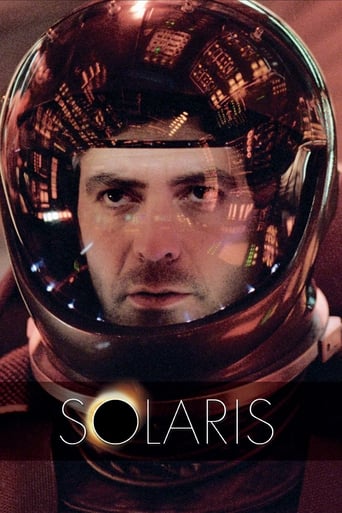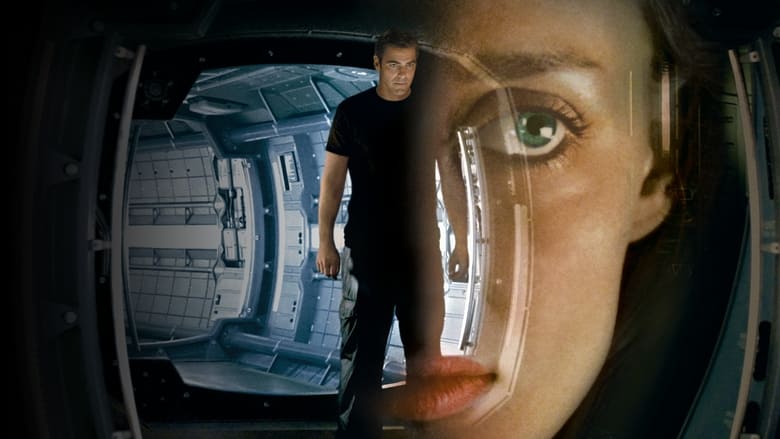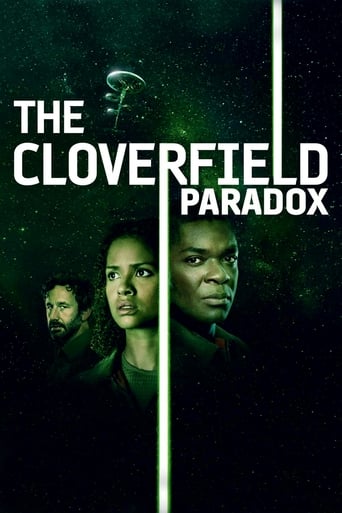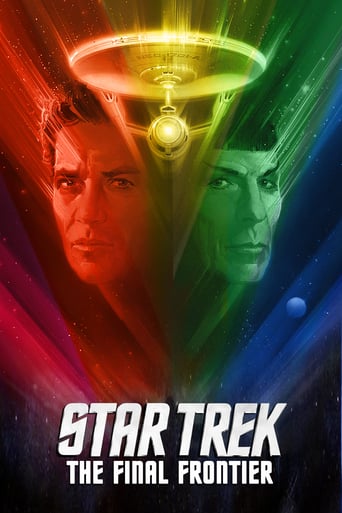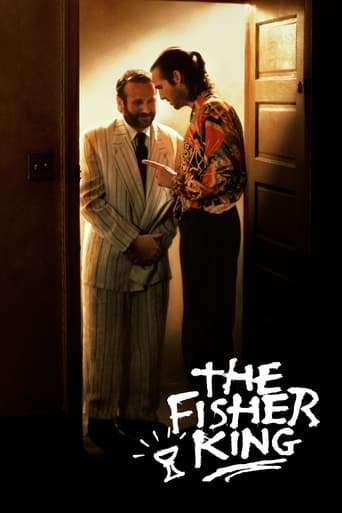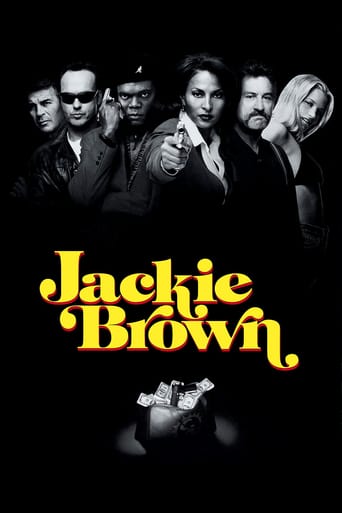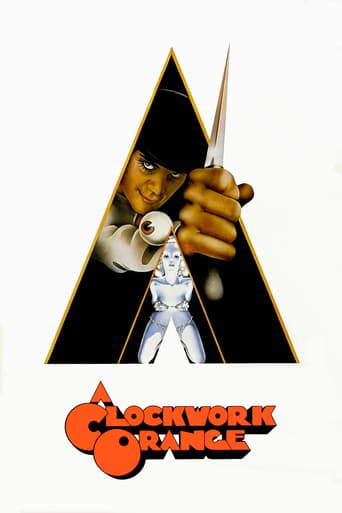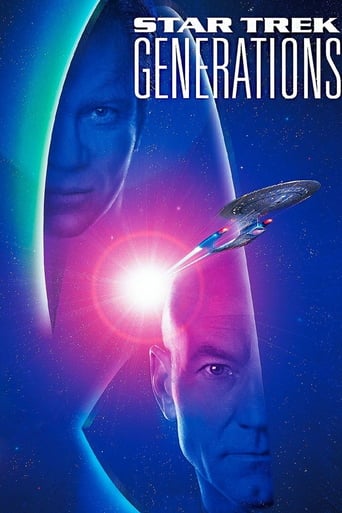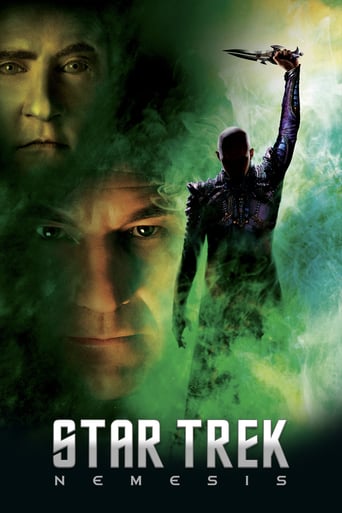Solaris (2002)
A troubled psychologist is sent to investigate the crew of an isolated research station orbiting a bizarre planet.
Watch Trailer
Free Trial Channels
Cast


Similar titles
Reviews
Too many fans seem to be blown away
Plot so thin, it passes unnoticed.
Nice effects though.
The joyful confection is coated in a sparkly gloss, bright enough to gleam from the darkest, most cynical corners.
Steven Soderbergh is the second great director to film an adaptation of the highly acclaimed novel by Stanislaw Lem. The late great Soviet director Andrei Tarkovsky made the first version of the film in 1972. This version is written, directed, photographed, and edited by the rising star Steven Soderbergh. Astute observers of cinema will recognize Soderbergh as the director who had two films nominated for best picture in the same year (Erin Brockovich and Traffic). From the previews one might expect a sci-fi space film in the tradition of 2001: A Space Odyssey. This film is actually better seen as a film about the landscape of the mind that happens to be set in outer space. George Clooney plays a psychiatrist and widower who attempts to deal with his grief by burying himself in his work. He is called away from his routine when he is asked to investigate a crisis in outer space. Two astronauts have died, and the survivors have sent back messages that are mysterious and a little scary. The psychiatrist is dispatched to solve the mystery and fix the crisis.Here he encounters an astronaut known as Snow, a delightful character full of quirks and tics. It took me a while to place the actor, but I finally recognized him as Jeremy Davies, the actor who played Corporal Upham in Saving Private Ryan. Davies gives one of the great supporting performances in the film, but the real sizzle in the acting department comes from Clooney and Natascha McElhone, the actress who plays Clooney's dead wife.Playing a dead wife might not seem especially challenging but therein lies the rub. When Clooney awakens after his first night on the spaceship, he discovers a live version of his wife in bed right next to him. Clooney soon discovers that the two surviving astronauts in the spaceship have had similar experiences. People go to bed and wake to find people that they have lost and long to see, next to them in bed.What we have told to this point could almost be gleaned from the previews. To tell more of the plot is to spoil the suspense that is an important part of the experience. If the viewer choosing this film is looking for an extraterrestrial shoot-em'-up he or she will be sorely disappointed. As a love story and psychological thriller, Solaris works quite well and Soderbergh solidifies his status as one of the great directors working in film.
Oh, how the mighty have fallen. This movie was a Top #250 film on IMDb in 2015, and now registers a '6.2' rating as I write this. Funny what a difference a couple of years make with the inclusion of additional visitors to the title.Before watching this picture I had no knowledge of the novel by Stanislaw Lem or the original Russian movie based on it. So without contaminating my review with the perspectives of those two works, what I thought started out as a pretty good sci-fi mystery turned into an illogical love story aboard a space station. I thought there were all kinds of problems here, principally starting with the main character, Chris Kelvin (George Clooney). He was introduced as an intellectual and level headed psychiatrist who was invited to Solaris because of unexplained occurrences that were driving the scientists on board insane. Fair enough, but when he himself experiences the impossible, he abruptly turns off his brain in order to resume a failed relationship with the woman who was his wife (Natascha McElhone) on Earth. Why? How does that even make sense? There's also inconsistency with the character of Rheya. The 'first' Rheya who appears on Solaris has memories of her past with Kelvin, but the 'second' Rheya' doesn't. Until she does again when flashes of life on Earth intrude on her memory. I'm really bothered by internal consistencies in a story, and the two I just mentioned were big time ones.What I really like about well written sci-fi flicks though, is the scientific gobbledy-gook that writers come up with in service to a story. You could have blown me away with that description of the Higgs device - a high energy proton accelerator with a matter phase modulator, which by adjusting the tuning frequency, you could get an enhancement of Higgs anti-bosons at ninety gigahertz, and even better, an almost pure beam at a hundred sixty gigahertz.See, if I were writing the story, Kelvin could have saved himself a lot of trouble by cranking up the Higgs to a full one eighty, thereby reversing the mass exponentiality of the Solaris gravitational field. Then, by switching to decoupled internal power, he could have calibrated the external high-grain antenna and set a course back to Earth, one that wouldn't have jeopardized the possibility of bringing an alien life force back with him. If he wanted to see Rheya again, he could have depressurized the spin turbines on the Athena, settled back with a brandy, and made love to his heart's content. I guess the simplest explanation is just too obvious.
Once again we have people complaining about their boredom. It's so slow. A true psychological drama may appear slow because the person watching has such a short attention span and a limited world view. There, I've said it, Mister 1 out of 10. I prefer the Russian version of this book by Stanislaw Lem, but this is a worthy interpretation. The planet Solaris has an affect on anyone that approaches it. It is a sentient organism and so it isn't there to be exploited; it's there to protect itself. When George Clooney's character is called to investigate the goings on at a space station that has been set up to investigate access to a water planet, he walks into a surreal mass of images and tricks. Something is causing personages to appear on board the space station. A child who should not be there runs down a hallway. People are committing suicide or running away, frightened or overwhelmed by emotions. Clooney, despite being a rock, still succumbs to the planet's trickery because of his great love for his lost wife. I often like to look to movies for an intellectual challenge. It doesn't always work, but there are few that don't offer something to think about.
This movie starts out interesting, but pretty soon it becomes silly, and much more fantasy than sci-fi. The acting is so-so. The script is often stupid/awkward, but sometimes poetic (in a good way). The characters aren't introduced much, and seem unfamiliar and hard to associate with. The movie generally doesn't evoke much emotion, except a few times, mostly because it so often induces disbelief. Certain camera shots (like seeing a character's face) feel unnecessarily long without adding substance, and at the same time, some story aspects are underdeveloped. There is no explanation for how clones of specific dead humans, with their memories, appear out of nowhere. The crew members are certain, by unknown reasons, that it's the planet below that creates them. Of course. And they are not unusually perplexed, amazed or in disbelief. The whole movie feels shallow because of this unrealism. It would have been potentially interesting to learn more about the planet Solaris.Also, more could have been done out of the main character's approach to Solaris. More emotion.At one point the characters discuss how the "visitors" are built. One of the crew members comes up with what is supposed to be a wild guess, the other one programs a particle accelerator (how come they have one on the ship to begin with?) based on that guess, and it just happens to be correct. And again, no questions asked and no explanations. There are multiple such ignored bits in this movie.The mentioned physics is bad too. Bosons do not have anti-particles, and the Higgs field gives *everything* mass, and exists everywhere. Although the Higgs was not yet experimentally confirmed by the time this movie was made, this has been theorised for some time. It would only take a simple internet search.However, the movie has some good aspects too. The visuals are beautiful. There is some really aesthetic lightning and scenery. The planet Solaris looks fascinating, and there are some nice shots of it. There are a few good story elements about love and regret, and the occasional emotional atmosphere. Background music is fitting.

